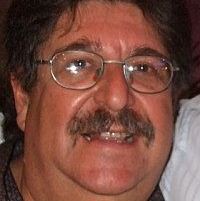
Community

Jewish boxers supported ‘People’s Olympics’
JACK MILNER
What many people do not know was that with the growth of Communism, an alternative to the Berlin Olympics was arranged to be staged in Barcelona at the same time. In May 1936, the government of autonomous Catalonia in Spain announced they would play host to a Popular Olympiad, also known as the “People’s Olympics” and the “Workers’ Olympics”, for athletes who wanted no part in supporting the Nazi regime.
The Barcelona Games, organised under the auspices of Catalan President Luis Companys, whose name appeared on all official documents, were ambitious. Planned athletic competitions included track and field, soccer, rugby, swimming, water polo, tennis, basketball, cycling, wrestling, gymnastics, shooting, and table tennis.
An athlete merely needed to make his or her way to the Games to take part. The organisers promised room and board for all competitors and a seven-storey hotel was reserved to room 1 600 participants. The hotel had been built for the International Exposition held in Barcelona in 1929, as had been the 54 000-seat Montjuic Stadium, which was to be the site for track and field events.
In Canada Sammy Luftspring, aged just 20, was the son of a bootlegger. Sammy had grown up in a tough Toronto immigrant neighbourhood and learned to protect himself at a boxing club at the local Young Men’s Hebrew Association. By 1933 he was an Ontario amateur champion.
That year Luftspring took part in the famous wild street brawl when members of a local pro-Nazi club put up a large banner with a swastika. It led to a confrontation with a rival Jewish baseball team and lasted for hours.
A move to boycott the Berlin Olympics found little support. In the United States Avery Brundage, president of the American Olympic Committee, complained that the boycott movement was part of a “Jewish-Communist conspiracy” to keep the country from participating.
Canadian officials followed Britain’s lead in agreeing to take part even after it became clear the Nazis intended to use the Games as a propaganda stage.
Luftspring was certain to win a spot on Canada’s Olympic boxing team and he wanted to go overseas to show the Nazis the same fighting spirit he had shown their sympathisers on the streets of Toronto. But his parents feared for his life and as a good Jewish boy, he listened to them. So he decided to go to Barcelona instead.
Luftspring convinced fellow boxer Benjamin Norman Yakubowitz to join him. Yakubowitz was a ferocious bantamweight and fought under the name Baby Yack. They wrote a letter to The Globe explaining their decision to skip the Canadian Olympic boxing trials.
“We know that we, as Canadian boys, would be personally safe and perhaps well received in Germany,” they wrote. “But can we forget the way the German government is treating the Jewish boys in Germany? No athlete or sportsman would think of engaging in a sporting contest with a bully who would ill-treat even a dumb animal. The German government is treating our brothers and sisters worse than dogs.”
It was during the Depression and the two did not have funds to travel to Europe. Harry Sniderman, a well-known Toronto sportsman, found a group of Jewish backers. Businessmen donated funds and more money was raised from the pass-the-hat proceeds from Jewish Community Softball league games.
Sniderman also organised a stag at which bookies and bootleggers were in the unaccustomed role of giving – not taking – money. More than $2 000 was raised and Sniderman joined them as a team manager.
Athletes from other participating countries began converging on Barcelona. Germans who had fled the Nazis and were living in exile, had a delegation, while a team of Jewish athletes represented Palestine.
Some of the early arrivals in Barcelona were delighted to hear what they thought were fireworks being exploded in their honour. Unfortunately, they were bullets as the Spanish army launched a rebellion against the Republic.
As it turned out, the Canadians were waiting for a train in Toulouse, France, when word reached them about the uprising. Alas, the “People’s Olympic” were cancelled.
Luftspring and Yack turned professional soon after returning to Toronto. Both had some success, though Luftspring’s career ended prematurely after being accidentally thumbed in the eye during a fight. He went on to become a distinguished boxing referee and co-owned a popular Toronto nightspot.
He wrote an autobiography in 1975 titled “Call Me Sammy” and he was inducted into Canada’s Sports Hall of Fame. He died in 2000, age 84.
Yack won the Canadian bantamweight title in 1937. After retiring from the ring, he struggled to find his place, serving in the armed services during the Second World War before becoming a bookie. He spent some time in prison.
When the journalist William Stephenson profiled the fighter in 1979, he was a recovering alcoholic driving a cab for a living while resident in a cheap hotel. Yack died in 1987, age 71.




